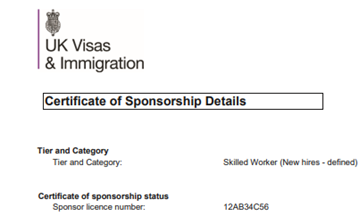Residential Day and Domiciliary Care Managers and Proprietors, classified under SOC Code 1232, are pivotal to the healthcare sector, overseeing the comprehensive care of service users to facilitate a personalized healthcare journey. The responsibilities of these professionals include:
- Supervising Care Services: Ensuring all aspects of service users' care are met with attention to detail, providing personalized assistance throughout their healthcare journey.
- Communication Coordination: Optimizing effective communication between staff, service users, and stakeholders to ensure seamless service delivery.
- Team Management: Leading and managing teams and departments within the organization, with responsibilities for planning and delegating tasks and work duties accordingly.
- Operational Improvements: Implementing enhancements and streamlining daily operations while ensuring compliance with established procedures and promptly addressing any issues.
- Staffing Assessments: Evaluating staffing needs, planning work schedules, and accommodating sudden changes to ensure continuous service for users.
- Quality Assurance: Ensuring that the organization adheres to its procedures and consistently delivers the highest quality of care.
- Professional Development: Participating in training days/courses, on or off-site, as required to stay abreast of best practices and regulatory changes.
As the demand for high-quality care continues to rise, many organizations are looking to integrate skilled Residential Day and Domiciliary Care Managers and Proprietors from overseas into their teams. This guide will assist HR professionals in navigating the hiring and sponsorship process for these essential roles under the UK's immigration system.
What is SOC Code 3411 for Residential day and domiciliary care managers and proprietors?
SOC Code 1232 refers to residential day and domiciliary care managers and proprietors who oversee the provision of care services to ensure that service users receive comprehensive and personalized assistance throughout their healthcare journey. Their responsibilities can include:
- Supervising care: Overseeing all aspects of service users' care to ensure personalized support.
- Coordination: Facilitating effective communication between staff, service users, and stakeholders.
- Team management: Leading teams and departments within the organization, planning and delegating tasks appropriately.
- Operational improvements: Implementing strategies to enhance daily operations while ensuring compliance with regulations.
- Staffing assessments: Evaluating staffing requirements and planning work schedules to adapt to sudden changes.
- Quality assurance: Ensuring the organization adheres to established procedures and maintains high standards of care.
- Professional development: Attending training days and courses as necessary to stay updated on best practices.
Residential day and domiciliary care managers and proprietors play a vital role in delivering high-quality care and support to service users, enhancing their overall healthcare experience.
Eligibility to Hire Residential day and domiciliary care managers and proprietors (SOC Code 3411)
1. Job Requirements
Residential Day and Domiciliary Care Managers and Proprietors must exhibit strong leadership skills and meet established qualifications or experience criteria. These may include:
- Experience in Care Management: Previous experience managing teams in a healthcare setting or in a similar supervisory role.
- Communication Skills: Proven ability to coordinate effectively with staff, service users, and stakeholders to facilitate comprehensive care.
- Skills in Organisation: Demonstrated capacity to plan, delegate tasks, and optimise workflows to ensure smooth operations.
- Regulatory Knowledge: Understanding of compliance procedures and ability to implement improvements within regulatory frameworks.
- Problem-Solving Ability: Capability to identify issues and resolve them promptly to maintain the quality of care provided to service users.
- Training and Development: Commitment to ongoing professional development, including attending training days/courses as required.
- Education: While formal educational requirements may vary, qualifications in health and social care, management, or a related field can be advantageous.
Ensure the job description aligns with SOC Code 1232 and that the candidate’s experience and qualifications meet the expectations for the role.
- Salary Thresholds
- Use the Minimum Salary Calculator to ensure your salary offer meets immigration requirements.
Sponsoring Residential day and domiciliary care managers and proprietors: A Step-by-Step Guide for HR Professionals
Once you’ve confirmed that the role and candidate meet the eligibility requirements, follow this step-by-step guide to sponsoring Residential day and domiciliary care managers and proprietors under SOC Code 1232.
Step 1: Obtain a Sponsor Licence
Before hiring non-UK Residential day and domiciliary care managers and proprietors, your company or institution must obtain a sponsor licence. This licence enables you to legally sponsor overseas Residential day and domiciliary care managers and proprietors under the Skilled Worker Visa program.
- Sponsor Licence Application: Submit documentation proving that your business is legitimate and has a genuine vacancy. Visit the sponsor licence application guide for more information.
- Sponsor Licence Fees: Small businesses typically pay £574, while larger institutions pay £1,579. For more information, visit the sponsor licence fees guide.
- Processing Time: Applications typically take up to 8 weeks, but using the Sponsor Licence Priority Service can reduce the processing time to 10 working days.
Once your sponsor licence is approved, you will receive a sponsor licence number, which allows you to assign Certificates of Sponsorship (CoS).
Step 2: Assign a Certificate of Sponsorship (CoS)
Once you have your sponsor licence, the next step is to assign a CoS to the Residential day and domiciliary care managers and proprietors. This document provides key details about the job and the individual being sponsored.
- Defined vs Undefined CoS: Use a Defined CoS for Residential day and domiciliary care managers and proprietors applying from outside the UK, and an Undefined CoS for those already in the UK. Learn more in the Defined & Undefined Certificates of Sponsorship guide.
- Required Documents: Provide details such as the Residential day and domiciliary care managers and proprietors’s portfolio, passport and job offer. Refer to Documents Required for Certificate of Sponsorship for a full list of necessary documents.
Step 3: Apply for the Skilled Worker Visa
Once the CoS is issued, the Residential day and domiciliary care managers and proprietors can apply for the Skilled Worker Visa.
- Visa Fees: Fees vary depending on the role and visa length—use the visa fees calculator to estimate the costs.
- Immigration Skills Charge: Employers are required to pay this charge as part of sponsoring non-UK workers. This is separate from visa fees.
Conducting a Right to Work Check for Residential day and domiciliary care managers and proprietors
Before the Residential day and domiciliary care managers and proprietors begins working, you must conduct a right to work check to ensure they are legally allowed to work in the UK.
- Manual Right to Work Check: Verify original documents such as the Residential day and domiciliary care managers and proprietors’s passport and visa.
- Online Right to Work Check: If the Residential day and domiciliary care managers and proprietors holds an eVisa, you can use the UK government’s online system to verify their right-to-work status.
For more details on how to perform these checks, see the right to work check guide.
Post-Hiring Responsibilities and Compliance
- Record-Keeping and Reporting
- Record-Keeping: Maintain accurate and up-to-date records of the Residential day and domiciliary care managers and proprietors’s employment details, salary and contact information.
- Reporting Changes: Report any significant changes to the Residential day and domiciliary care managers and proprietors’s role—such as promotions or salary increases—via the Sponsor Management System (SMS).
- Sponsor Licence Duties and Compliance
- Failure to comply with your sponsor licence duties can result in penalties or sponsor licence revocation, impacting your ability to sponsor future Residential day and domiciliary care managers and proprietorss.
How Borderless Can Help with Sponsoring Residential day and domiciliary care managers and proprietors
Sponsoring Residential day and domiciliary care managers and proprietors under SOC Code 1232 can be a complex process, but Borderless can simplify it for you. We offer comprehensive support to help you manage the entire sponsorship process.
End-to-End Sponsorship Support
At Borderless, we assist with:
- Sponsor Licence Application: Guiding you through the application process and ensuring all required documents are submitted correctly.
- Certificate of Sponsorship Assignment: Streamlining the CoS process to make hiring easier.
- Compliance Management: Helping you stay compliant with immigration laws to avoid penalties.
If you need assistance with hiring or sponsoring Residential day and domiciliary care managers and proprietors, get in touch for personalised support.
Conclusion
Hiring and sponsoring Residential day and domiciliary care managers and proprietors under SOC Code 1232 can be a rewarding way to enrich the cultural landscape of your organisation. By following the steps outlined in this guide, you can successfully navigate the sponsorship process while ensuring compliance with UK immigration laws.
For further guidance, Borderless is ready to assist you with all your sponsorship needs. Contact us for expert advice.
Automate Home Office Audits with Borderless
The Borderless platform provides a centralized system for all sponsorships, automating reminders for key tasks and ensuring best practices across your organization, simplifying audit preparation and ongoing compliance.






